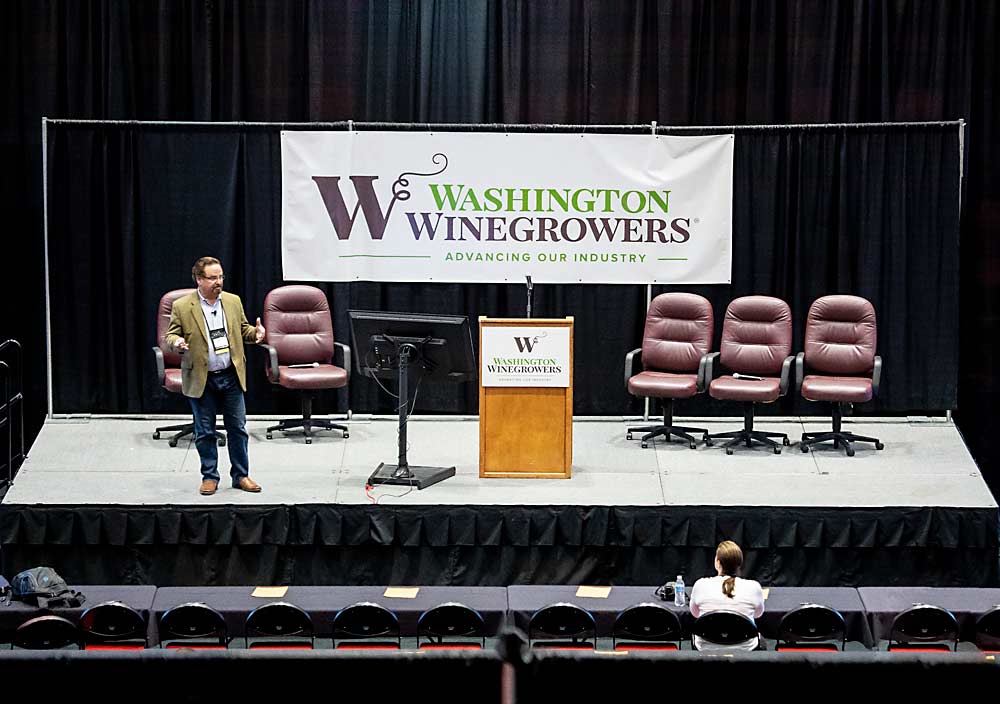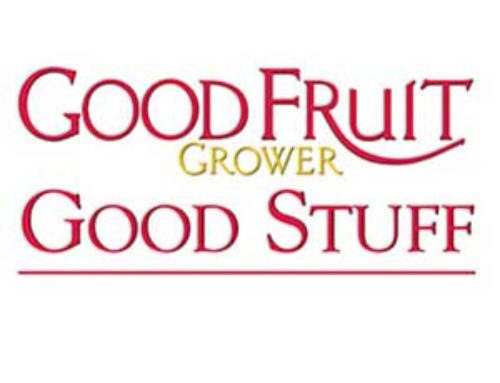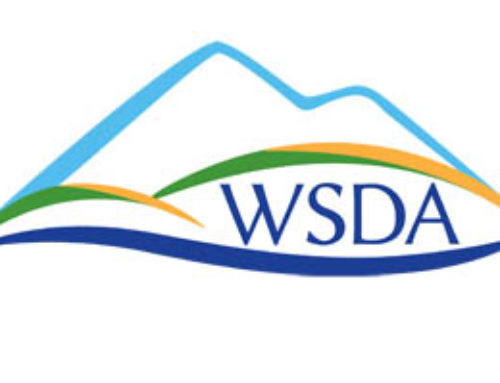
In January, when we announced that the Washington Winegrowers Association board of directors made the call to pivot our convention, now called WineVit, to a virtual format, the responses were instant but, surprisingly, not negative. Some were thankful we take safety seriously, some disappointed but resigned that large in-person functions remain unrealistic, some thrilled to be able to attend sessions over more than two and a half days, and some knew it was inevitable.
The annual convention was recently rechristened WineVit, which the association trademarked, to draw attention to the fact that the event serves both the wine and grape industries.
While WineVit has a new name and new virtual format this year, it’s the same great event and natural conjunction of two worlds: grape growing and winemaking. We are united by a common fruit and a common purpose with common goals: to unify stakeholders and advocates of the wine and grape industries and offer the best chance to expand their knowledge of political issues, plans for change and growth, challenges in business and progress in the field. Plus, being virtual allows attendees networking opportunities with industry service and supply providers in an intentional format.
This year, we will take a hard look at ourselves in the annual “State of the Industry” session. Given the challenges of 2020 — global pandemic, oversupply and wildfires — we have a host of problems but also a host of opportunities. Our glass can be half full. Speakers at WineVit will offer a broad overview and an insider’s look at wine industry trends, global supply and demand, and what we can expect from current research projects and findings.
The focus is not only on the recent past but also on the role future generations play. By learning how farming on rootstocks impacts outcomes in other growing regions, our attendees will leave ready to experiment with new ways to improve yield.
Another session will provide a forum to discuss the latest advancements in filtration technology. In “All Who Filter Are Not Lost,” experts in techniques, equipment and processes will share their knowledge and a tasting of wines made using some of these techniques.
Going virtual allows greater access for our viticulture and enology students from around the state and around the Northwest. Educators and researchers will also find the format more appealing, as the schedule is in “time bites” that are easier to work into schedules.
We are particularly pleased with how being virtual will boost attendance and availability of the Poster Session. Research posters include work by undergraduate students, graduate students and professionals and will provide an opportunity for graduate students to share their research during an oral presentation.
To learn more, visit our brand-new event website: www.winevit.org or our social media pages on Facebook and Twitter, with the hashtag #WineVit.
And in other news
2020 was a heck of a year in many ways, and along with the challenges, we’ve been afforded many opportunities that were not previously available or obvious to us. Some we would not willingly do again, but they are opportunities nonetheless.
—Lobbying near and far: From the freezes of last fall to COVID-19 and then smoke impacts, Washington Winegrowers has tripled its interaction with state and federal policymakers and regulators. Both smoke and COVID-19 motivated West Coast wine and grape associations to create a unified front, representing a powerful force on federal issues including research funding, crop insurance, disaster relief and the craft beverage tax.
—Certified sustainable: 2020 brought the culmination of industry desire to build a Washington-specific certification program for sustainability. While 20 years in the making, having the industry push toward creating a third-party auditable standard is nothing short of breathtaking and history-making. #GoodOnUs.
—Vinewise/Winerywise: If you haven’t ever clicked to view these sustainability programs, trademarked by the Washington Winegrowers, now is the time. This is the platform that currently offers insights and education toward greater and more comprehensive sustainable practices; it will soon morph to include a certification component for Washington wine grapes. Stay tuned.
—Grape quarantine: Five years ago, a large meeting was held in the Columbia Gorge and included wineries, growers, nurseries, researchers and regulators from Oregon, Idaho and Washington. They agreed to start the process of harmonizing grape quarantine rules in the three states and to harmonize nursery certification as well. Fast forward (OK, it was slow forward) to this year and the grape quarantine and nursery certification rules are done!
—Not consumed raw: When the Food and Drug Administration enacted the Food Safety Modernization Act, wine grapes were lumped into the “grape” category as though they were consumed as table grapes. Wine grapes (and juice grapes) should have been in the “rarely consumed raw” category, like potatoes. While we have been successful in convincing the FDA not to enforce the rule, changing the rule is the goal, and we have another shot at it now with letters filed in early January.
—Where there’s smoke, there is research: Congressional language provided a $1.5 million increase in funding for U.S. Department of Agriculture’s research on wildfire smoke taint, putting total funding for fiscal year 2021 at $3 million. That additional funding is another example of great work by the consortium of West Coast wine grape organizations. These funds will be shared with researchers at Washington State University, University of California, Davis and Oregon State University.
—Clean Plant Center Northwest funding: While the National Clean Plant Network helps fund the Prosser-based center to a large degree, they do not fund all needs. The center serves the hop, grape and tree fruit industries in Washington, the Northwest and the nation. Last month, these three industries agreed to each step up to offset the costs of the center’s operations, assuring a sustainable source of clean plants now and in the future. •
—by Vicky Scharlau






Leave A Comment